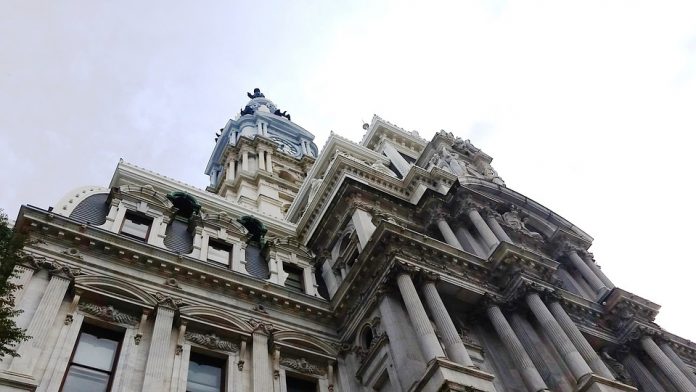Legislation banning plastic bags is meandering its way through City Council.
The question seems to be not whether to ban single-use plastic bags, but, rather, if a fee should be imposed on paper bags.
Plastic bags, ubiquitous in grocery, convenience and retail stores, have been targeted by environmental groups. The bags are a major source of litter and clog up recycling machinery.
On Thursday, the bill was scheduled to be up for a final vote, but it was held. First District Councilman Mark Squilla, the ban’s backer, said he is in talks with councilmembers and environmental advocacy organizations to finalize the legislation.
We’re still working with a lot of the stakeholders to see if we could come up with more amenable language,” Squilla told the Northeast Times.
Amendments are expected, he added, meaning a final vote could still be weeks away.
An original version of the bill included a 15-cent fee on paper and reusable bags. During an Oct. 22 committee hearing, Squilla decided to cut the fee down to 10 cents before eventually removing it all together, at the apparent urging of Seven District Councilwoman Maria Quinones-Sanchez.
“I am against any regressive tax and any fee to poor people, particularly in food deserts,” she said during the hearing. “A ban without a fee still gets ahead of where we are today.”
Not everyone agrees, and some argue it could make the situation worse.
Environmental advocates say a ban with a fee is more effective in curtailing the use of plastic and reducing litter.
The legislation bans single-use bags, which it defines as made from plastic less than 2.25 mils. It also bans “non-recyclable paper bags.”
Stephanie Wein, of PennEnvironment, said similar laws in other cities have led to stores giving away free thicker plastic bags. Effectively, that circumvents the law and puts more plastic on the streets, she said.
“That’s what we want to prevent,” Wein said in an interview.
A fee encourages people to bring their own reusable bags or not use any bags for smaller items, Wein said.
She recalled a recent trip to a corner store where she bought a candy bar and the cashier stuffed it in a bag.
“It’s so reflexive,” Wein said.
She said PennEnvironment, a statewide advocacy organization, does not support Squilla’s bill in its current form.
Some don’t support a ban at all.
Tenth District Councilman Brian O’Neill said shoppers, especially those from Northeast Philadelphia, are already heading to the suburbs because of the soda and cigarette taxes, in addition to the extra 2 percent sales tax in the city.
“We don’t need another reason at this point to drive people to stores outside the city,” O’Neill said. “You have to factor that in.”
O’Neill said he expects bags to be banned at some point across the country. However, he would prefer a state regulation.
Currently, state law bars municipalities from banning plastic bags. Squilla’s bill would go into effect in July, after the state legislation expires.
Thought he’s a “no” vote, O’Neill said he expects the prohibition to easily pass City Council.
Council has tried to ban single-use plastic bags in the past. In fact, this is the fourth effort to prohibit plastic since 2007.
There’s a feeling that this time is different. More than 200 cities in the nation have restricted the bags, according to Nic Esposito, director of the city’s Zero Waste and Litter Cabinet.
During the committee meeting, he said a city report found that bags are the fifth-most littered item in Philadelphia. Last year, the water department removed eight tons of plastic from streams, waterways and stormwater drains, Esposito said. About 17 percent of that haul was single-use bags.
Esposito said Mayor Jim Kenney’s administration supported the ban but wants to allow stores to set their own fees. Some, like Aldi, already charge for bags.
The ban would apply to all stores and restaurants, though an exemption is carved out for dry cleaning bags. Bags that serve as wrapping for perishable goods would also be exempt.
Dog lovers will still be able to purchase poop bags. Not exempt, according to Squilla, are bags used to keep newspapers dry. ••






